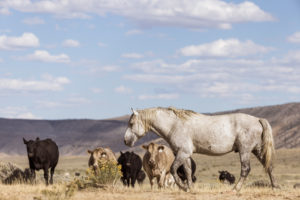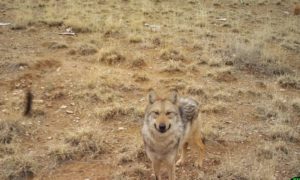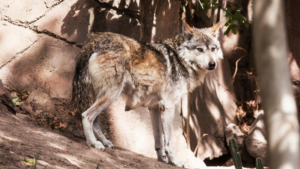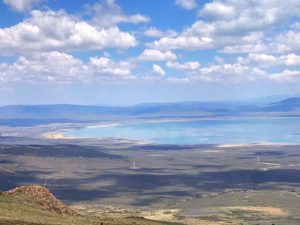For Immediate Release
November 14, 2019
Contact:
Scott Lake, Western Watersheds Project, (208) 429-1679; scott@westernwatersheds.org
BURNS, Ore. – On November 7th, Senators Ron Wyden and Jeff Merkley introduced legislation that prioritizes economic development in Malheur County while also designating some public lands as wilderness. Conservationists were swift to criticize the proposal.
“This bill calls for continuing and expanding the leading cause of environmental degradation in the Owyhee River canyonlands: domestic livestock grazing,” said Scott Lake, Idaho Director for Western Watersheds Project. “Overgrazing has left the area at extreme risk from invasive weeds, loss of biodiversity, and streamside habitat destruction. This bill does nothing to address the root cause of these problems, and instead actively promotes commercial uses that have already done so much damage to the land.”
The legislation, called the Malheur Community Empowerment for the Owyhee Act, prioritizes “support[ing] and grow[ing] local communities and economies,” “protect[ing] western traditions,” and, most troublingly, “maintain[ing] grazing on federal land.” However, the total economic contribution of livestock, even in rural Malheur County, is relatively insignificant. Farm income makes up only 3.5% of the total income in Malheur County, and only about 40% of the farms have any connection with the livestock industry.
The Malheur Community Empowerment for the Owyhee Act wrongly asserts that livestock are a beneficial tool for landscape restoration when, in fact, the best available science shows the opposite is true. The arid sage-steppe of southeastern Oregon evolved without heavy grazing pressure, and livestock grazing has been linked to the proliferation of nonnative species and the decline of native wildlife. Conversely, removal of livestock has been shown to dramatically improve soil conditions, vegetation, watershed health, and water quality.
Livestock encourage the spread of cheatgrass and other invasive species by breaking down the two main defenses against invasion—native perennial grasses and biological soil crusts. Recovery from such impacts can take decades. In the meantime, the land remains vulnerable to invasion by cheatgrass and other annual grasses that destroy habitat and increase wildfire risk. Restoration of degraded lands is possible, but only if they are adequately protected from livestock.
Only 6% public land in the BLM Vale Resource Area meets basic land health standards, while 94% of the BLM acres assessed are failing to meet standards because of current livestock grazing practices. What’s more, BLM has never even checked more than 60% of grazing leases in the area to see if they were meeting or failing land health standards. The proposed legislation, however, would put the livestock industry squarely at the center of land management decisions by creating a rancher-dominated advisory council to develop and implement public lands policy.
“Even with federal regulations fully in place, the ranchers of southeastern Oregon have a troubling and abysmal record of failing to safeguard the health of public lands,” said Lake. “These particular public lands are perhaps the last place that Congress should put under the management of the livestock industry, yet that’s exactly what this legislation does.”
The bill also relaxes BLM’s legal obligations under the National Environmental Policy Act (NEPA). This bedrock law requires federal agencies to look before they leap, consider environmentally responsible alternatives, and seek and respond to public input. Under the proposed legislation, the public would only be able to weigh in on BLM proposals once every ten years, and the bill excuses BLM from NEPA’s requirement to conduct a thorough, project-specific environmental analysis.
“All across the West, the livestock industry is proposing schemes to cut down woodlands, plant invasive forage plants, and fragment native wildlife habitat to increase the production of forage for domestic cattle and sheep,” said Lake. “We need more public scrutiny to rein in these types of projects, not less.”
The bill covers the ancestral lands of the Burns Paiute Tribe.






